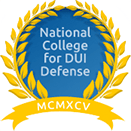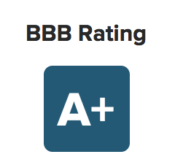Table of Contents
-
Under Arrest in New Jersey and Seeking Release Through Bail
-
First Appearance Before a Judge
-
Pre-Trial Intervention in Indictable Offenses
-
Pre-Indictment Activities
-
The Criminal Indictment Process in New Jersey
-
Pre-Arraignment Conference and Arraignment
-
Pre-Trial Conference and Trial
-
Post-Conviction Motions
-
Do Not Face the N.J. Criminal Process on Your Own
Criminal Process in New Jersey
If you have been charged with a crime in New Jersey, it is understandable that you have questions or maybe confused about what will or should happen next.
The first thing you need to know is that you have rights. The second fact to understand is that you need an experienced New Jersey criminal defense attorney to protect your rights.
Below, The Law Offices of Jonathan F. Marshall explain the basics of the criminal process in New Jersey. We are experienced N.J. criminal defense attorneys, with a team made up of former prosecutors and public defenders from across the state. As your defense team, we will put our 100 years of combined legal experience into fighting the charges you face.
If you or a loved one have just been arrested or indicted in New Jersey, call us now, day or night, including on weekends. Things happen quickly after an initial arrest. Our attorneys can step in to protect your rights from the very beginning.
SCHEDULE A FREE CONSULTATION
Under Arrest in New Jersey and Seeking Release Through Bail
Many criminal cases begin with an arrest by a police officer who has received a complaint or allegedly witnessed a violation of the law. In such a case, the individual is apprehended, taken to a police station and formally charged, or “booked.”
In New Jersey, crimes are considered either “disorderly persons offenses” or “petty disorderly persons offenses,” which are minor crimes, or “indictable offenses,” which are more serious crimes. New Jersey’s petty disorderly persons’ offenses are comparable to misdemeanors in other states. Indictable offenses are comparable to felonies.
Depending on the crime being charged, the defendant may be released on own recognizance (ROR) or held in custody. By law in New Jersey, if a defendant is held, bail must be set within 12 hours. In addition to bail, there may be conditions placed upon the defendant’s release, such as a chemical dependency evaluation or restraining order.
Bail is payment meant to ensure the defendant will appear in court when required. It is returned. Bond is set as a portion of a defendant’s bail. A bail bond company, which a defendant may contact for assistance, may pay a bond and ensure the defendant’s appearance.
A defense attorney can represent the defendant as soon as possible after an arrest. If engaged while in custody, an attorney can negotiate release conditions with the prosecution and the court. The goal is to obtain an ROR or as low a bail as possible.
If you have been arrested, you should ask for your attorney and declined to answer questions until you have spoken to your attorney.
First Appearance Before a Judge
After an arrest, the defendant will be ordered to appear in court on a “first appearance.” This is when defendants are formally advised of the charges against them and their rights, and their bail is reviewed.
A defendant in custody has a right to a first appearance within 72 hours, excluding holidays. The first appearance for a defendant released on bail is to occur without unnecessary delay.
Indictable criminal offenses are heard in Superior Court. Disorderly person offenses and petty disorderly person violations are heard in municipal courts.
Among the rights a defendant will hear about at their first appearance is their right to counsel. If the defendant indicates that they cannot afford a lawyer, the Criminal Division staff will conduct an indigence investigation to determine whether to assign the defendant a public defender.
Regardless of your financial status, you deserve competent legal representation if you have been charged with a crime. An initial consultation with The Law Offices of Jonathan F. Marshall is always free. Whether your charges are serious or minor, if we can, we will work with you to expand your legal options and protect your rights.
Pre-Trial Intervention in Indictable Offenses
At the first appearance for a defendant charged with an indictable offense, the judge will advise the defendant about the opportunity to enter the pre-trial intervention program (PTI). This is a diversionary program that allows certain defendants to avoid formal prosecution by entering into court-supervised community living, often with counseling or other support. The objective of PTI is to provide an incentive for first-time non-violent offenders.
Admission to the PTI program requires the consent of the prosecutor, the Criminal Division Manager and the judge assigned to the case. Their decisions will be based on the results of an investigation by Criminal Division Case Supervisors.
As a condition of entry into the PTI program, defendants may be required to obtain a substance abuse evaluation from the courts, submit to urine testing, participate in substance abuse or mental health counseling or community service, pay restitution and fines, or give up a firearm or driver’s license.
Criminal charges against participants in the PTI program are formally suspended for up to three years and are dismissed if the participant completes the program.
Pre-Indictment Activities
After a first court appearance, the county prosecutor’s office must decide whether the case has merit and there is sufficient evidence to pursue a conviction. Some counties hold a formal in-court event, such as Central Judicial Processing (CJP) or Pre-indictment Program (PIP).
Regardless of formality, the prosecutor’s staff reviews police reports and interviews victims and witnesses to determine whether the original charges will be prosecuted.
If there is insufficient evidence, the charges will be downgraded to disorderly persons offenses and “remanded,” or sent to the municipal courts for a hearing, or dismissed. If a complaint is not resolved during the pre-indictment review, it will be presented to a grand jury for action.
Before a case is sent to a grand jury there is an opportunity for the defendant’s attorney to have the charges reduced or dismissed. In some cases, due to the unique aspects of the case, the defendant may agree to a plea bargain, which requires pleading guilty to a lesser offense instead of going to trial. Defendants who plead guilty as part of a plea bargain do not surrender their right to appeal their convictions to the Appellate Division of Superior Court.
A seasoned New Jersey defense attorney, such as ours at The Law Offices of Jonathan F. Marshall can advise you about the risks of going to trial vs. agreeing a plea bargain. A plea agreement may provide a quick and reasonable resolution to a criminal case and may be pursued at any time prior to going to trial.
The Criminal Indictment Process in New Jersey
Criminal charges for more serious offenses in New Jersey are filed with an indictment. Prosecutors must present evidence to a grand jury to obtain an indictment.
The New Jersey Constitution guarantees citizens the right to have charges against them presented to a grand jury. A grand jury is a panel of 23 citizens who hear criminal complaints and decide whether there is sufficient evidence for the state to prosecute an individual for an indictable offense.
An indictable offense in New Jersey is a First Degree, Second Degree, Third Degree or Fourth Degree crime, such as:
- Aggravated Assault
- Burglary
- Conspiracy
- Credit Card Fraud
- Eluding
- Firearm and Weapons Charges
- Possession and Distribution of Controlled Dangerous Substance (CDS)
- Prescription Drug Fraud
- Robbery
If the grand jury returns an indictment, the court will typically issue an arrest warrant, which orders police to apprehend the defendant named. In some cases, prosecutors may seek a summons, which states a date by which the defendant must appear in court for formal arrest and charges. After being arrested and charged, the indicted defendant may post bail or a bond, as described above.
It is essential to obtain the counsel of an experienced defense attorney if you face indictment in New Jersey. Indictable offenses are serious crimes carrying penalties that include significant fines and prison time upon conviction.
Pre-Arraignment Conference and Arraignment
Individuals charged with a crime enter their formal plea of “not guilty,” “guilty,” “no contest,” etc., at an arraignment. This is to occur within 50 days of the return of an indictment.
In New Jersey, a pre-arraignment conference is to be held within 21 days of the return of an indictment. Before a pre-arraignment conference, the prosecutor’s office is to make discovery, or evidence it has compiled, available to the defendant’s defense attorneys.
The pre-arraignment conference provides another opportunity for the defendant to apply for the PTI program or be admitted to the program, seek the assistance of a public defender, or indicate how they intend to plead to the charge for which they were indicted.
Upon notification by the Criminal Division, defendants must appear at their scheduled arraignment and face formal notification of the charges against them, and may plead to the charges in the indictment. If plea negotiations have been beneficial to the defendant, he or she may plead guilty to revised charges.
If the defendant enters a guilty plea at the formal arraignment, the judge will order a presentence investigation. Sentencing will follow the presentence investigation.
If plea negotiations are ongoing, the parties may review the status of the plea offer at the arraignment.
In cases that remain open (there is no guilty plea), the defense may file one or more motions, or legal documents that ask the court for a specific action, such as to suppress evidence unlawfully obtained. The prosecution may file motions, too. The judge will set dates to rule on any motions and for a final status conference.
Pre-Trial Conference and Trial
At the final status conference, or pre-trial conference, the judge will seek to determine there are no motions pending, discovery is complete, and that everything within reason has been done to dispose of the case. If the defendant wishes to proceed to trial, a trial memorandum is prepared and entered into the record with a trial date.
Anyone charged with a crime in New Jersey or anywhere in the United States has the right to a trial by jury. A defendant may also waive their right to a jury trial and, if the court approves, have their case decided by a judge alone.
A jury consists of 12 people, plus two more designated as alternate jurors.
At trial, the prosecution is tasked with proving its case, so it goes first, and the defense follows. The trial starts with the prosecution’s opening statement, in which it will preview its case. The defense may or may not present an opening statement.
Both sides then present their evidence to the jury. Afterward, each side presents a closing statement to summarize the evidence and make their final arguments. The judge then charges the jury, which means advising jury members as to the verdicts the panel may return and what law applies to the case.
The jury then deliberates and eventually returns to report its verdict. Defendants are either found guilty or not guilty by a jury (or judge). A guilty verdict must be unanimous. If a majority of a jury believes the defendant is guilty but it is not unanimous, the judge may declare a “hung jury” and a mistrial.
Normally, a person found not guilty (acquitted) has no further obligation to the court and is set free. Prosecutors have no right to appeal acquittals, and “double jeopardy,” or charging a defendant twice for the same offense, is not allowed under the U.S. Constitution.
Defendants who have been found guilty, or convicted, face sentencing, where punishments are rendered by the judge who tried the case. At the trial’s conclusion, the judge will order a presentence investigation by the court staff, and set a date for sentencing.
The presentence investigation report is designed to help the judge weigh the circumstances of the crime, the defendant’s criminal and juvenile record, and overall life situation, and determine an appropriate sentence within what’s allowable under the law. For some crimes, such as using a gun during a robbery, the judge must sentence the newly convicted criminal to prison for at least the minimum term defined by applicable law.
Post-Conviction Motions
A person who has been convicted of a crime has the right to appeal their case to the Appellate Division of Superior Court. This court will review the trial record and decide whether decisions made by judges in the Superior Court were fair and equitable. Defendants may also file motions, or requests to their sentencing judge, to have the sentence modified or for other relief.
Do Not Face the N.J. Criminal Process on Your Own
Whether regarding drugs, driving, or another accusation, being charged with an indictable offense in New Jersey puts your future at risk. You could lose your freedom and money paid for a fine, and damage prospects for employment or eligibility for government benefits if convicted. Schedule a free consultation with our respected New Jersey criminal defense attorneys today to learn how we can keep this from happening to you.












